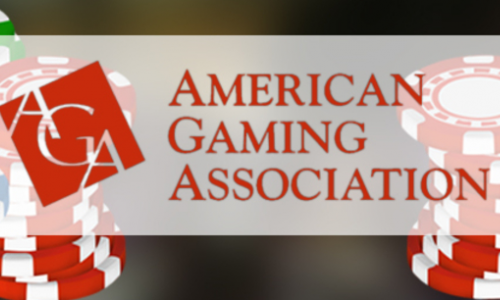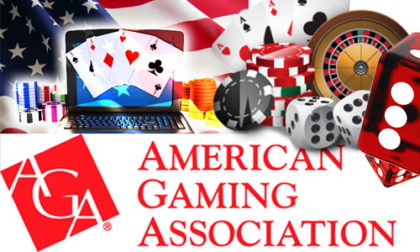AGA Modernizes Code of Conduct
The American Gaming Association (AGA), the leading lobbying organization for the United States’ caino-entertaiment industry, has updated and modernized its Code of Conduct on Responsible Gaming, applicable to the AGA’s members, services and venues through which gambling is offered to the general public.
 The AGA also recently held kickoff events in Las Vegas and Atlantic City, through which many of the new code’s standards were unveiled. Among the enhancements: the official expansion of the code itself to cover all forms of licensed gaming within the US’s plentiful gambling markets, including land based, mobile and interactive. Prior to this update, annd largely due to the efforts of prominent AGA member Las Vegas Sands Corp. to block anything to do with “online” gambling, the earlier editions of the AGA’s conduct code dealt with land-based (“brick and mortar”) services and venues only.
The AGA also recently held kickoff events in Las Vegas and Atlantic City, through which many of the new code’s standards were unveiled. Among the enhancements: the official expansion of the code itself to cover all forms of licensed gaming within the US’s plentiful gambling markets, including land based, mobile and interactive. Prior to this update, annd largely due to the efforts of prominent AGA member Las Vegas Sands Corp. to block anything to do with “online” gambling, the earlier editions of the AGA’s conduct code dealt with land-based (“brick and mortar”) services and venues only.
According to the AGA, the updated code also “includes new consumer protection measures, including enhanced transparency around casino game’s odds and payouts, enhanced transparency in advertising and ensuring that advertising or marketing will not misrepresent the probability of winning.”
The AGA’s updated code of conduct (viewable in its entirety by clicking here), begins with a focus on four distinct areas of responsibility, gathered under a “Pledge to our Patrons” umbrella:
To Promote Responsible Gaming
To Prevent Underage Gambling and Unattended Minors in Casinos
To Serve Alcoholic Beverages Responsibly
To Advertise Responsibly
Separate sections than offer a “Pledge to Our Employees” (meaning workers at AGA-affiliated casinos) and a “Pledge to the Public”.
It is worth noting that despite the nobility of the effort, nothing contained in the legal code is legally binding. Reality also intrudes with unfortunately high frequency: casinos across the country struggle with underage gamblers sneaking in, most typically with falsified identification, and casinos themselves are frequently accused of plyng gamblers with free or discount-priced alcohol in an attempt to urge patrons to gamble both longer and for higher sums. In recent years, several high-profile court cases have involved gamblers’ accusations against such casino practices.
Nonetheless, part of the AGA’s job is to create such workplace ideals. According to said Geoff Freeman, the AGA’s president and CEO, “The AGA is proud to be the leading voice behind the gaming industry’s continued commitment to responsible gaming. AGA members have made responsible gaming a year-round commitment and will continue to train their employees in the most effective practices to ensure all our customers enjoy the casino gaming industry responsibly.”
Several industry groups affiliated with the AGA offered quotes in support of the latest update:
“In Indian Country, we do not take any type of addiction lightly,” said Ernie Stevens, Jr., Chairman of the National Indian Gaming Association. “Our Tribes have prioritized and developed programs on addressing the disease of gambling addiction since the inception of our industry. This is an issue however that transcends Tribal or commercial gaming. We know the importance of addressing this issue responsibly and we are proud to partner this week with the AGA and National Council on Problem Gaming to highlight our industry’s efforts in combating this illness.” (NIGA recently partnered with the AGA on the AGA’s call to end the US’s PASPA ban on sports-betting, though the group subsequently declared that it was not necessarily in favor of a nationwide sports-betting expansion itself; that topic was to be considered in future gambling negotiations.)
“AGEM, our member companies and our Director of Responsible Gaming, Connie Jones, are pleased to join all of those in the gaming industry supporting Responsible Gaming Education Week,” said Marcus Prater, Executive Director of the Association of Gaming Equipment Manufactures. “Presenting a unified message of commitment and putting a spotlight on an area of responsibility all of us share not just during this special week, but 24/7, reflects our full-time focus on an important aspect of our specific gaming entertainment.”
“Responsible gaming practices are for everyone involved with gaming,” said Russell Sanna, Executive Director for the National Center for Responsible Gaming. “Our collective efforts to constantly improve responsible gaming will provide for a healthy industry that benefits local communities and our nation.”




















COMMENTS